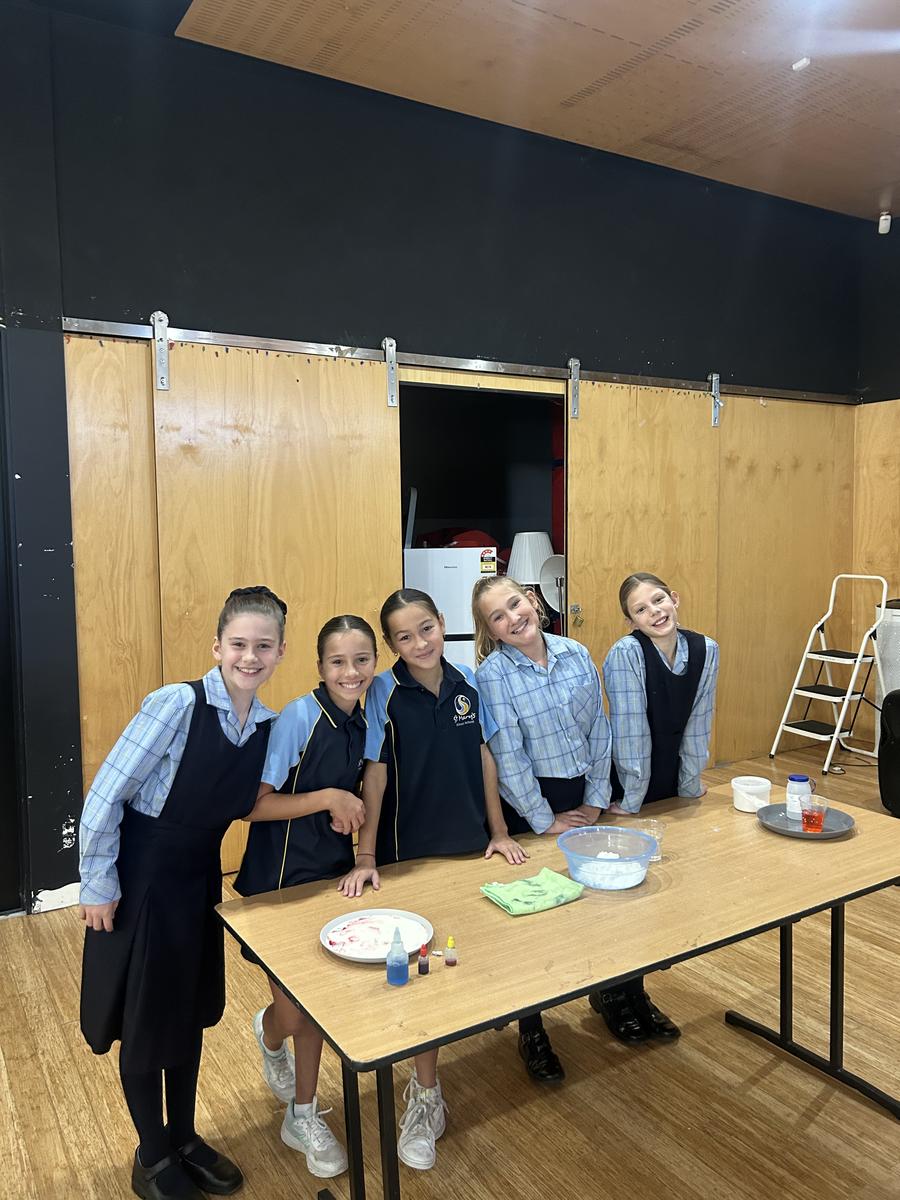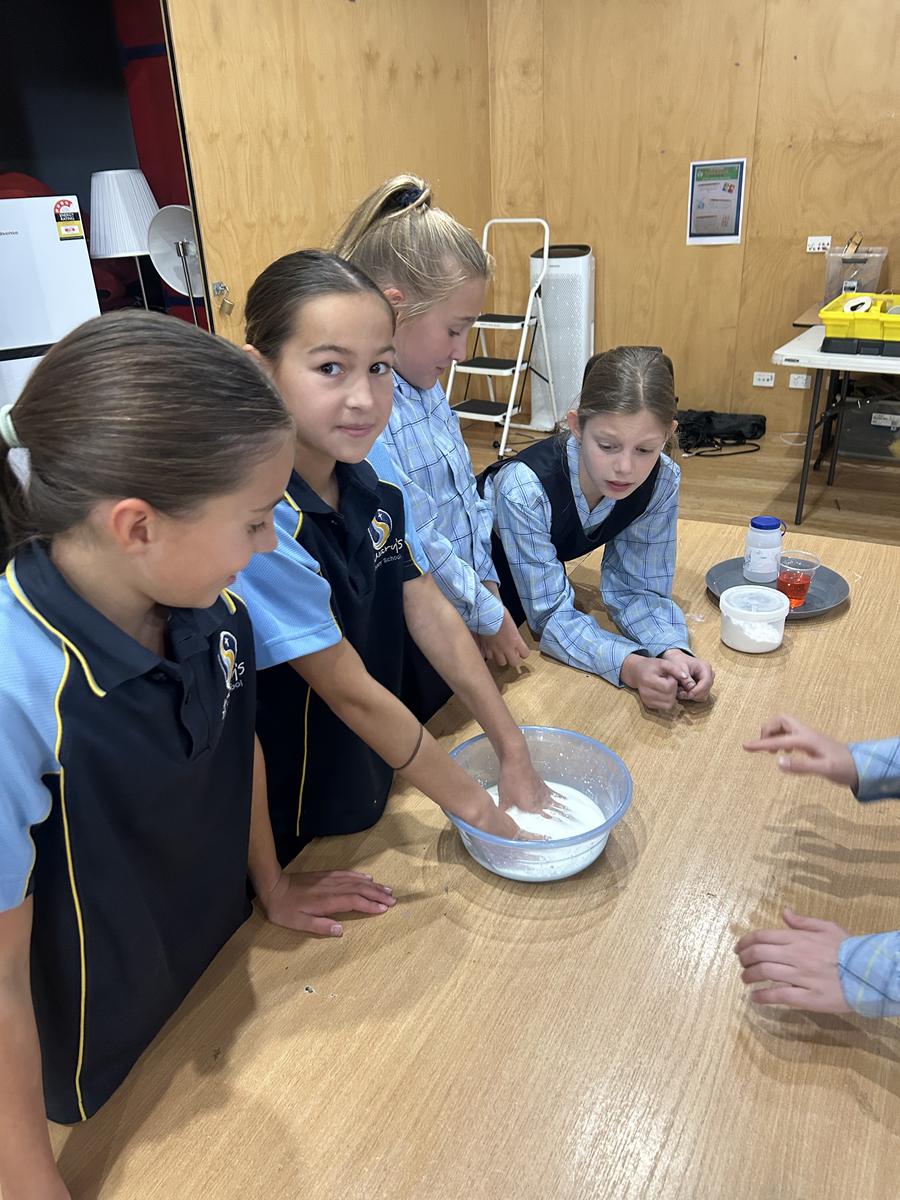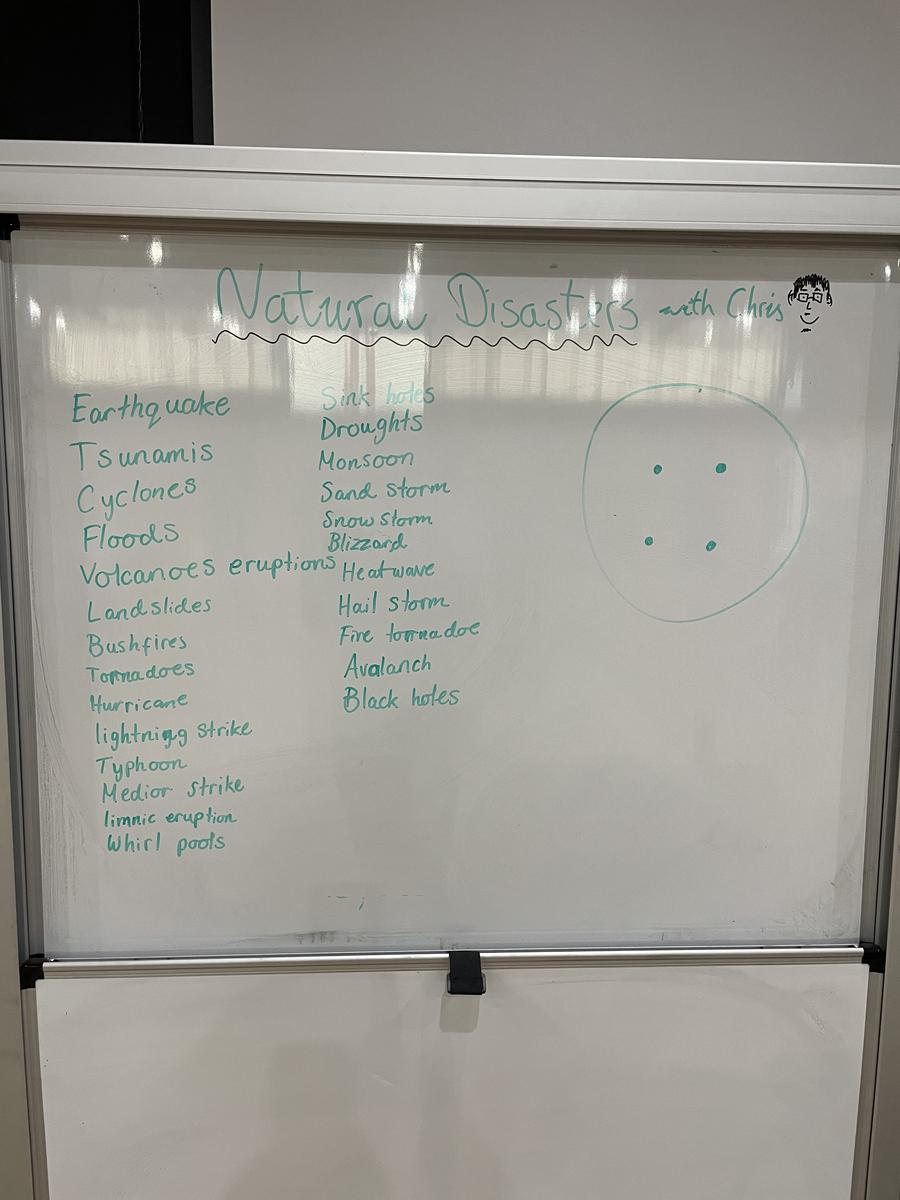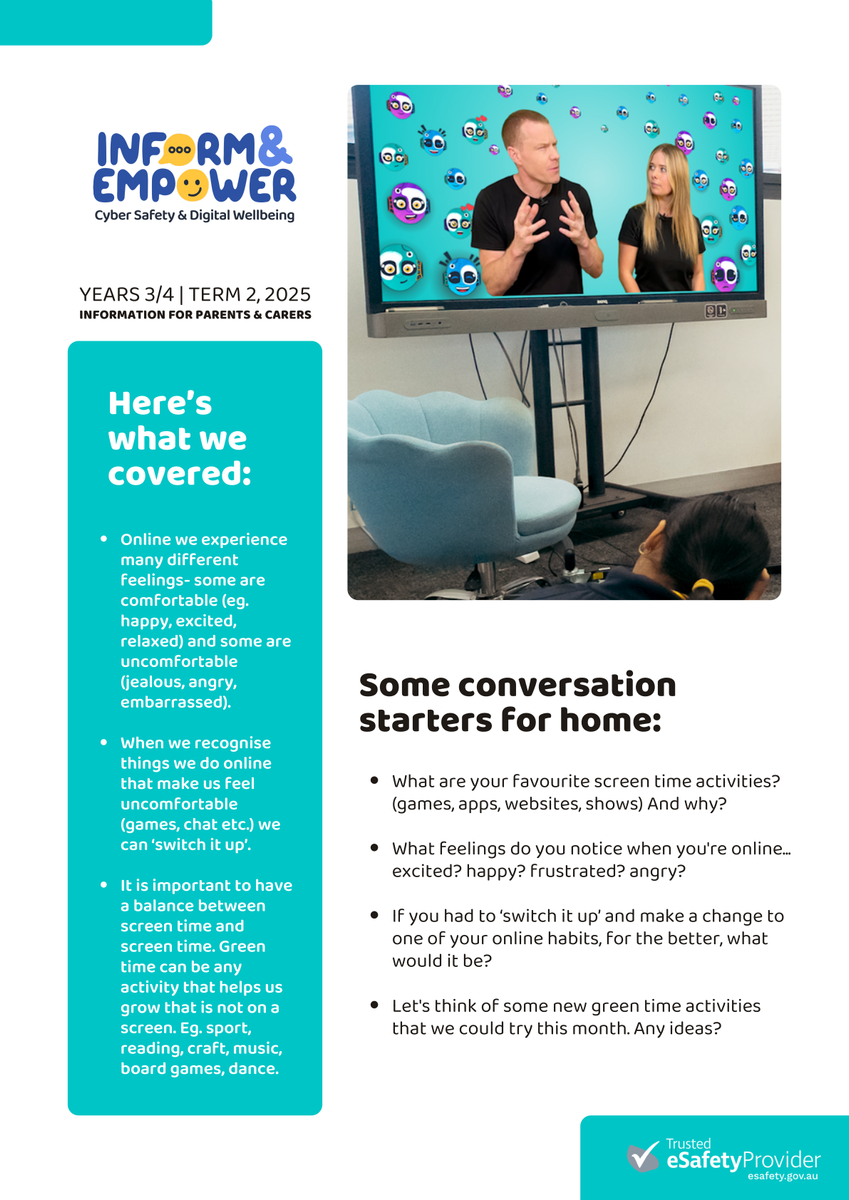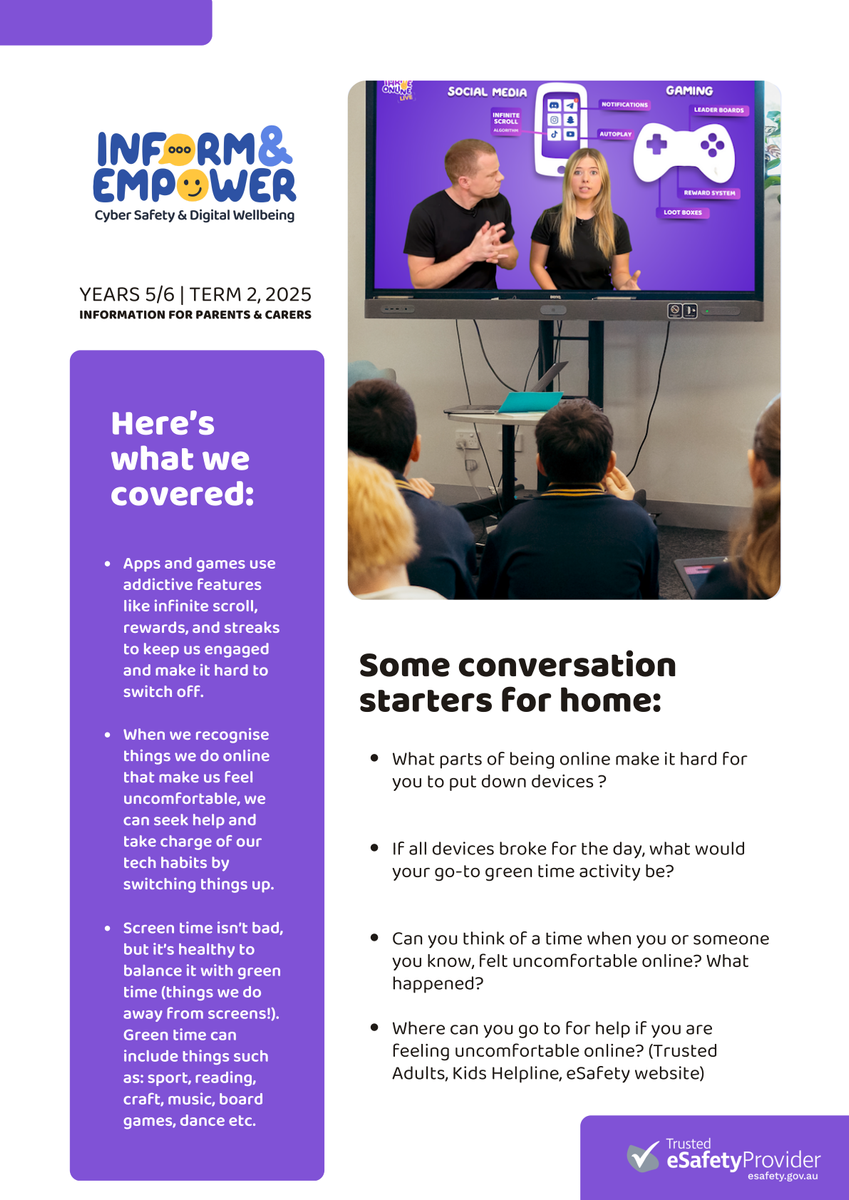Senior School News

This week students from 3-6 were lucky to have a Swinburne science incursion.
Years 3-4
Students explored the latest in space science as they traveled into outer space to understand planetary rotations and orbits, and used the language of numbers to understand the wonders of our Universe.
Years 5-6
Students explored layers within the Earth, tectonic plate movement, and the causes of natural disasters like earthquakes, volcanoes, and tsunamis. They took part in hands-on activities that teach taught Earth’s mantle layer and its movement.
As our senior students continue to grow in independence and responsibility, it’s important that we work together to support them in developing the habits and values that will serve them well into adolescence and beyond. Two key areas that play a significant role in this stage of development are responsible technology use and a strong understanding of respect; both online and offline. In this edition of the newsletter, we will explore why these topics matter and how families can help reinforce these important lessons at home.
Digital Safety
In today’s digital world, technology plays a vital role in education, entertainment, and social connection. While it offers many benefits, it also presents challenges—especially for children and young adolescents who are still developing the skills to safely and responsibly navigate online spaces. One of the most effective ways parents can support their child’s wellbeing is by actively monitoring what is happening on their computer screens at home.
Monitoring screen activity doesn’t mean invading privacy; it means being present, involved, and informed. Children may not always understand the risks associated with online content, games, or interactions. By keeping screens in visible, shared areas of the home, parents can ensure that the material being accessed is age-appropriate, respectful, and safe. Regular check-ins and open discussions help children build good digital habits and become more mindful of their online behaviour.
With the increasing use of laptops for homework and school-based tasks, there’s also the temptation for students to become distracted or multitask with unrelated sites or games. By supervising screen time, parents can help their children stay focused on educational tasks, manage time effectively, and build a healthy balance between work and recreation. Encouraging short breaks, limiting non-essential screen time, and establishing clear routines can all contribute to positive learning outcomes at home.
Monitoring also opens the door to important conversations about cyber safety, including cyberbullying, online predators, and the permanence of digital footprints. Children and young people are more likely to speak up about uncomfortable online experiences when they know their parents are engaged and supportive. Setting boundaries together—like which websites can be used, how long they can be online, and when it’s time to switch off; fosters trust and encourages responsible digital citizenship.
Ultimately, keeping a close eye on screens at home isn’t about control—it’s about connection. It allows families to be part of their child’s digital journey and ensures that technology remains a tool for learning, growth, and creativity rather than a source of stress or harm. As educators, we thank you for continuing to partner with us in guiding your children through the digital age with care, support, and awareness.
The Importance of Respect in Senior Years
As students grow older and move through the senior years of primary school, the concept of respect becomes increasingly important—not just as a school value, but as a vital life skill. Respect underpins every healthy relationship, whether it be between peers, between students and teachers, or at home with family members. At school, we see firsthand how a respectful attitude can lead to stronger friendships, better learning outcomes, and a more positive school culture.
Respect begins with how we speak to and treat one another. This includes using polite language, listening without interrupting, and accepting others’ differences. In a time when students are becoming more independent and beginning to form their own opinions, it’s crucial that they learn to express themselves in a way that honours others’ perspectives while still standing up for their own values. These skills take time to develop and benefit greatly from consistent reinforcement at both home and school.
With increased access to digital communication, we also need to guide students in showing respect online. This includes understanding how words can impact others, even when typed behind a screen. Whether it's during class forums, group chats, or online gaming, respectful behaviour must carry over into all forms of communication. Parents can play a key role by checking in with their child about their online interactions and discussing what respectful digital behaviour looks like.
Respect also extends to responsibilities—being punctual, completing tasks to the best of one’s ability, and treating shared spaces and belongings with care. When students show respect for their learning environment and the efforts of others, they develop a sense of ownership and pride in their work and in their school. These habits help build a strong foundation for success in both school and life beyond.
As a school, we are committed to modelling and teaching respect in every classroom. We encourage parents to continue these conversations at home, praising respectful choices and discussing the importance of empathy, kindness, and integrity. Together, we can ensure our senior students continue to grow into thoughtful, respectful, and confident young people ready to lead by example.

